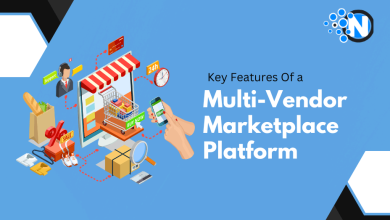Future Trends in Manufacturing Project Management: What to Prepare For?

The extensive development of advanced technologies and global challenges announced the start of a new era for the manufacturing industry. What does it mean for manufacturing project management?
Advanced technologies (AI, automation, data analytics, and others) dramatically change the way manufacturers plan and execute their projects. In the future, we’ll see even more essential transformations in manufacturing project management, which will considerably increase its effectiveness.
Let’s explore the key trends affecting manufacturing project management and how they will help improve manufacturing projects’ outcomes.
Trends in Manufacturing Project Management
Start creating Verdict in seconds, and convert more of your visitors into leads.
1. Increased Adoption of Manufacturing Project Management Software
The future of project management for manufacturing is closely related to the wide use of specific project management software. Projects are becoming more and more complex, involving multiple resources, complex equipment and processes, which makes it incredibly difficult to coordinate them manually. Project management software for manufacturing has specific solutions for managing timelines, budgets, resources, tracking progress, etc., which improves cross-department coordination, increases efficiency, and minimizes delays.
Some of the manufacturing project management tools already have predictive analytics, real-time data representation, and provide AI-powered insights. Using these capabilities, project managers will be able to foresee the potential risks and therefore improve resource utilization and make better decisions.
Those capabilities will only get more powerful and sophisticated in the future. For example, cloud-based platforms will be integrated into PM software to enhance collaboration, which is critically important for manufacturing organizations operating in various countries.

2. Project Planning and Execution With AI and Machine Learning
AI and machine learning play a critical role in the production process in general and manufacturing project management in particular. And that’s for a good reason: AI algorithms analyze huge amounts of data, identify trends, and forecast potential problems. This helps project managers take timely measures to prevent issues and make more effective decisions.
AI can also analyze previous projects and offer recommendations on estimates, schedules, resource allocation, or risk management. Finally, the technologies help automate repetitive tasks, which will allow team members and project managers to focus on more essential activities. We anticipate that AI and ML systems will continue to grow so you can expect more actionable project management insights in the future.
3. Leveraging Data Analytics for Decision-Making
Data becomes increasingly essential in today’s project management for manufacturing, and we expect its impact to increase in the coming decade. As we’ve noted earlier, the data analytics capabilities of modern project management software make it possible to improve decision-making by providing various insights into multiple aspects of project work.
To fully leverage these insights and enable seamless data exchange between systems, many organizations are beginning to learn EDI platform strategies and tools as part of their digital transformation efforts. Solutions like Orderful, a modern cloud-based EDI platform, are helping companies simplify integration and improve real-time data connectivity across supply chain partners.
Project managers can use real-time and historical data to analyze the current performance, predict future trends, and make reasonable decisions regarding changes to a project. Data analytics helps find the right resources to assign to tasks and optimize their performance, which contributes to timely and successful project completion.
Predictive analytics should be mentioned separately, as it’s become a game-changing technology for both manufacturing and project management. Predictive analytics helps project managers foresee threats and difficulties (e.g., equipment failure) so that they can take preventive actions and avoid roadblocks and their impact on the workflow.
4. The Use of IoT (Internet of Things)
At present, manufacturers actively use the Internet of Things (IoT). The technology allows them to unite equipment, machines, and various devices into a single ecosystem. It also gives them a way to see the data and track performance flow off of the line. Therefore, they are able to reduce downtime, make proper maintenance schedules, and ultimately optimize manufacturing processes.
The IoT insights can be used for manufacturing project management, too. Integrating this technology into manufacturing project management software will let PMs have comprehensive visibility into all project processes and production activities.
For example, project managers can forecast the need for equipment maintenance and use this information to adjust project schedules, avoid delays, and increase project performance.
5. Sustainability
Manufacturing companies will execute more sustainability initiatives focused on minimizing energy consumption, waste, and environmental pollution. This is explained by two factors: regulatory compliance at the state level and customers’ expectations for more eco-friendly goods.
Therefore, manufacturers will have to set sustainability goals at various stages of the production process, e.g., procurement of more sustainable materials, implementing solutions for minimizing energy consumption, etc. These measures will also affect manufacturing project management.
This means that PMs will have to monitor sustainability metrics and make sure that sustainability activities are effectively integrated into the project management process.
You may also like to read the Best Technologies for the Construction Industry
6. Working With Remote Teams
The shift towards remote work is also one of the persisting post-pandemic trends across industries. We expect it to remain in the manufacturing domain, too. Despite the fact that the production process cannot be conducted distantly, its management along with project management for manufacturing can be performed remotely. As a result, projects are being managed and executed by members of globally distributed teams.
Working with remote teams gives companies numerous benefits—e.g., the ability to tap into a global talent pool, reduce costs, etc. At the same time, remote work causes numerous challenges that project managers have to overcome.
Manufacturing project management solutions are a must to address these challenges: they provide a single source of truth for all the project participants, facilitate fruitful collaboration and effective communication so that team members’ physical location won’t matter.
Immersive technologies (virtual and augmented reality) also contribute to more effective remote work: they simulate the production environment and help teams plan projects and make decisions.
7. Focus on Risk Management
Manufacturing projects face diverse risks, e.g., equipment failure, supply chain disruptions, safety risks, etc. Obviously, they can negatively affect manufacturing projects’s flow causing delays, cost overruns, and reduced projects’ performance. What is more, manufacturing projects are becoming more and more complex: they require diverse resources and have multiple interdependencies, which makes their effective management a demanding task.
So, in the near future, manufacturers will put a greater emphasis on effective risk management. Project management software for manufacturing will also play a significant role in this process. For example, predictive analytics incorporated into PM software’s functionality can not only forecast possible threats but also help test different scenarios and select an optimum way to respond to a risky situation. This will help manufacturers avoid costly delays and ensure a streamlined project flow.
Concluding Thoughts
Start creating Verdict in seconds, and convert more of your visitors into leads.
Therefore, the most significant future trends for manufacturing project management include a wide adoption of advanced technologies, sustainability, working with remote teams, and a focus on risk management.
Also, manufacturing projects will benefit from the use of artificial intelligence, the Internet of Things, and data analytics. These tools will facilitate informed decision-making and provide comprehensive workflow control, effective resource allocation, and seamless project flow.
Manufacturing project management software is expected to play a vital role in helping companies adapt to these changes. For example, Epicflow is an example of next-generation multi-project resource management software suitable for manufacturing companies. It has advanced capabilities for effective resource allocation and decision-making, provides detailed control of the workflow, and improves project performance.




